Happy Tuesday! During a family vacation to Texas, former British Prime Minister Boris Johnson had a run-in with an ostrich, who pecked at the former Conservative leader through his open car window. We believe that’s what they call a “Dallas hello.”
Quick Hits: Today’s Top Stories
- Israeli Prime Minister Benjamin Netanyahu met with President Donald Trump at the White House on Monday, pledging to eliminate Israel’s trade deficit with the U.S., in addition to any trade barriers. Netanyahu lifted all duties on U.S. imports ahead of Trump’s tariff rollout last week. However, because the U.S. has a trade deficit with Israel, the country still faces a 17 percent “reciprocal” tariff that is set to take effect on Wednesday. Speaking alongside Netanyahu on Monday, Trump refrained from making any commitments to reverse the duty despite the Israeli leader’s overtures. “Don’t forget, we help Israel a lot,” the president said. “We give Israel billions of dollars a year. Billions. It’s one of the highest of anyone.”
- President Trump on Monday announced plans to hold high-level “direct talks” with Iran on Saturday, a development that would inch the administration closer to its goal of securing a deal to scale back the Islamic Republic’s nuclear program. “We’re dealing with them directly,” Trump said, adding that there have already been preliminary discussions between the two countries. But on Monday evening, despite confirming that the countries had begun talks, Iranian Foreign Minister Abbas Araghchi disputed Trump’s characterization of the negotiations as “direct.” Tehran has long refrained from engaging with the U.S. without the mediation of third-party countries.
- President Trump on Monday threatened to hit China with an additional 50 percent duty on Chinese imports, days after Beijing announced a 34 percent retaliatory tariff on American goods. Trump gave China until Tuesday to rescind its 34 percent tariff, which it issued in response to Trump’s “reciprocal” duty on China—also at 34 percent—that is set to take effect on Wednesday. Together with the administration’s two previous tariff hikes on China, the new levies could bring the total tariff rate on Chinese goods to 104 percent.
- The Supreme Court ruled 5-4 on Monday to lift temporary restraining orders blocking the Trump administration from deporting Venezuelan nationals—whom the government alleges are connected with the criminal gang Tren de Aragua—to a mega-prison in El Salvador under the 1798 Alien Enemies Act. An unsigned majority opinion agreed that the accused individuals “are entitled to notice and an opportunity to challenge their removal,” but ruled that they must bring their legal challenge as habeas corpus claim—making the case they were unjustly detained—rather than arguing that the president cannot deport criminal gang members under the law. Justices Sonia Sotomayor, Ketanji Brown Jackson, and Amy Coney Barrett all wrote separate dissenting opinions.
- The Supreme Court on Monday granted an administrative stay to temporarily block a federal judge’s Sunday order requiring that Kilmar Abrego Garcia—a Salvadoran national and U.S. legal resident who was deported to an El Salvador prison last month due to an “administrative error”—be returned to the U.S. by 11:59 p.m. on Monday. The temporary ruling will hold until the Supreme Court rules on the merits of the case. The Trump administration has argued that Abrego Garcia cannot be returned because he is in the custody of a foreign nation and outside the jurisdiction of federal courts. The government has accused Abrego Garcia of being a member of the MS-13 gang, an allegation he and his lawyer dispute.
- The D.C. Circuit Court of Appeals on Monday ordered that two Democratic members of federal labor boards fired by the Trump administration in January—Gwynne Wilcox of the National Labor Relations Board and Cathy Harris of the Merit Systems Protection Board—be reinstated to their positions. A three-judge panel of the same court on March 28 voted 2-1 to allow the Trump administration to fire the pair, which Monday’s ruling reversed. The Trump administration has argued it has the constitutional right to remove officials who wield executive authority. With the appeals court’s decision, the pair can return to their posts, barring the Supreme Court’s intervention.
- The White House issued a memo on Monday directing the Committee on Foreign Investment to review the Japanese-based Nippon Steel Corporation’s bid to acquire U.S. Steel for more than $14 billion. The two steel companies agreed to the merger in December 2023, which former President Joe Biden blocked in January, citing the potential “risk for our national security and our critical supply chains” posed by the foreign acquisition of the U.S. company. Trump has previously pledged to continue blocking the merger, saying as recently as December that he is “totally against” foreign ownership of U.S. Steel.
- A U.S.-based biotech genetic engineering company, Colossal Biosciences, announced Monday that it successfully cloned three dire wolves—a large, long-extinct canine species popularized by Game of Thrones—through genetic editing. Using DNA from a 72,000-year-old skull found in Idaho and a 13,000-year-old tooth found in Ohio, researchers engineered gray wolf genomes to resemble the genetic sequencing present in dire wolves, which are believed to have gone extinct more than 12,000 years ago. The company’s three cloned puppies—two 6-month-old males, Romulus and Remus, and a 2-month-old female, Khaleesi—were raised and reside at a 2,000-acre ecological preserve in the northern United States.
MAHA Meets DOGE
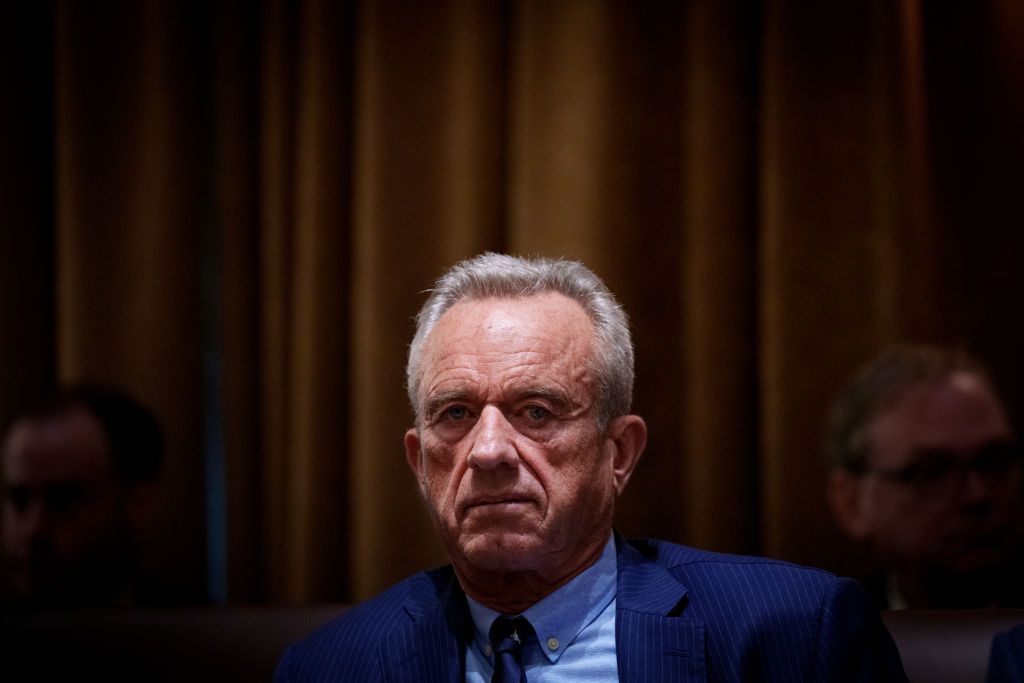
In recent months, federal agencies have been subject to a form of the poet John Donne’s famous maxim: Ask not for whom the Department of Government Efficiency comes, it comes for thee.
This saying applies even—or perhaps especially—to the Department of Health and Human Services (HHS), an executive branch department responsible for managing some $1.7 trillion in spending, roughly a quarter of the federal budget. Mass firings have swept HHS since early last week, as many employees arrived to work to discover that their key cards no longer granted them access to office buildings.
By the end of the week, some 10,000 employees—out of around 80,000 employed by HHS—had received termination notices. The dismissals came on top of the 10,000 HHS employees who had already taken the early retirement and voluntary separation offers pushed by the administration in recent months. Meanwhile, HHS Secretary Robert F. Kennedy Jr. ordered that contracts, including for services like IT support or specialized equipment like outside lab testing, be slashed by 35 percent. Scientists and other support staff from the National Institutes of Health (NIH), which has already faced extensive cuts, are also expected to be imminently laid off.
Much of the aggressive downsizing will face legal challenges. But if the cuts go through, they would constitute a major reorganization of one of America’s largest federal departments—and could undermine the health secretary’s stated goal to “Make America Healthy Again.”
When Kennedy assumed leadership of the department, he promised to make sweeping changes to how the government approaches American health care, focusing not only on the much-discussed area of vaccines but on broader policies related to nutrition, pollution, and food safety. Kennedy has described chronic diseases as an “existential” threat to the U.S., attributing their proliferation among Americans to chemicals and toxins in the food system, poor lifestyle choices, and an overreliance on medication.
“The first thing I’ve done every morning for the past 20 years is to get on my knees and pray to God that he would put me in a position to end the chronic disease epidemic and to help America’s children,” Kennedy said in the opening statement of his Senate confirmation hearing in January. In his first speech to HHS employees after being confirmed in February, he also highlighted fighting chronic disease as his main focus.
But some public health professionals view Kennedy’s definition of chronic illness as somewhat idiosyncratic. “I think the fundamental disconnect is how the secretary is defining chronic diseases, which is not necessarily the same as how experts in the field would,” Dr. Anand Parekh, the chief medical adviser at the Bipartisan Policy Center and a former deputy assistant secretary at HHS, told TMD. Parekh pointed out that while much of Kennedy’s rhetoric on the causes of chronic illness focuses on toxins in food and the environment, the traditional definition used by medical professionals includes factors like obesity, mental health issues, substance abuse—as well as what are called “social determinants of health,” like access to housing.
Take tobacco use, the leading cause of preventable death in the United States, for example. Last week, much of the staff of the Centers for Disease Control and Prevention (CDC) Office on Smoking and Health was placed on leave, along with employees of the Food and Drug Administration’s (FDA) Center for Tobacco Products. The former group investigated national changes in tobacco use, like the rise of vaping in the late 2010s, while the latter was charged with enforcing rules on the labeling and marketing of tobacco products. “How is that going to help you reverse the chronic disease epidemic?” Parekh asked.
But other cuts were more in line with Kennedy’s public agenda. A CDC team that worked on expanding access to vaccines was scrapped, while Dr. Peter Marks—the FDA’s top vaccine regulator—resigned under apparent pressure from the administration. The press release announcing the HHS reorganization noted that the agency’s new priority for preventing chronic disease would be “safe, wholesome food, clean water, and the elimination of environmental toxins,” overseen in large part by a new division called the Administration for a Healthy America.
Many programs aimed at preventing the transmission of HIV have also faced cuts, with home testing kits and national surveys of individuals living with and at risk of HIV on the chopping block. The department also suspended funds to initiatives like the AIDS Clinical Trial Group, which conducts research on experimental treatments for the disease.
Meanwhile, some 170 employees of the FDA’s Office of Inspections and Investigations were dismissed last week, cuts that will likely mean fewer food inspections. The move appears to clash with Kennedy’s “Make America Healthy Again” initiative, which specifically states that workforce reductions won’t affect food reviewers.
On Thursday, Kennedy indicated plans to walk back some of the sweeping layoffs. “Personnel that should not have been cut were cut—we’re reinstating them, and that was always the plan,” he said. “The part of that, DOGE—we talked about this from the beginning—is we’re going to do 80 percent cuts but 20 percent of those are going to have to be reinstalled because we’ll make mistakes.” Kennedy’s statement drew on Elon Musk’s longstanding corporate strategy of cutting “too much” and fixing problems after the fact, a blueprint he has since sought to bring to the federal government.
But Kennedy’s cuts might run into another problem: federal judges. Zachary Price, a professor at the University of California College of the Law, San Francisco, told TMD that the vast array of cuts faced three potential legal challenges: Entities created by law cannot be eliminated by the executive branch at will; congressionally appropriated money must be spent, according to longstanding U.S. legal practice; and federal employees must generally be terminated by following specific procedures.
On Friday, for example, 16 states sued the Trump administration over its efforts to withhold NIH grants from public health and medical research institutions. In an unrelated case on Friday, a federal judge banned the Trump administration from drastically lowering a cap on funding to “indirect costs” for research, which include expenses like facilities and support staff.
But there may be limits to the judicial branch’s ability to rein in the sweeping cuts. “I’m not sure that courts will just undo everything,” Price noted. “It’s not the type of thing that courts normally do: to say that whole programs have to keep running and order people to do that.” There is simply not much precedent for the type of judicial oversight needed to keep specific public health programs running, he argued.
Congress, on the other hand, may be better equipped to check the executive branch’s efforts to target the department’s programs and personnel. Lawmakers could threaten to withhold funds for Trump-backed initiatives, strip certain presidential powers, or refuse to pass the president’s preferred legislation in protest of the HHS cuts.
But so far, there seems to be little appetite for that sort of confrontation. As the layoffs began to take effect, Republican Sen. Bill Cassidy and independent Sen. Bernie Sanders—the chairman and ranking member of the Senate health committee—requested that Kennedy appear before lawmakers for a hearing on his department’s reorganization. But Kennedy’s team has yet to confirm his attendance, and Republican pushback to his cuts remains minimal.
For now, the elimination and reorganization of large portions of the HHS appears poised to continue. When can Americans expect to feel the cuts? “There’s going to be a little bit of a lag,” Parekh told TMD, pointing to the potential of slower responses to the outbreak of infectious diseases and difficulties in accessing services like substance abuse treatment and support for the disabled.
“Three months out, six months out, unless this is done in a thoughtful, transparent way, there are going to be things that fall through the cracks,” he added. “If they fall through the cracks, they will affect real people, in real ways.”
Today’s Must-Read
You can measure your income in all sorts of ways and get different-looking outcomes. If you got a 10 percent raise last year, then your income is 10 percent higher as measured by U.S. dollars. But it’s a lot lower if you’re measuring in gold, which has gone up in price by about 30 percent in the past 12 months. Your income may be 10 percent higher in dollar terms, but it is lower in gold terms, in egg terms, in house terms, etc., and it is more than 10 percent higher if measured against shares of Astera Labs stock or a gallon of diesel.
Toeing the Company Line
Take Your ‘Medicine’
What have we done?
The Best and the Worst
The difference between doing the work and destroying things.
Institutional Failure or Societal Shift?
Young military officers, especially from the Navy, are choosing work-life balance over prestigious commands.
Torpedo Bats, Explained
The Yankees’ impressive start puts a recent baseball innovation in the spotlight.
What Do Consumers Get Out of Fair Trade?
A specific case of ‘it feels good to do good.’
Justice Barrett’s RICO Revolution
Plus: How to argue in front of children.
Worth Your Time
- In the Washington Post, Michelle Ye Hee Lee detailed the rise and fall of the North Korean city of Hyesan. “It was flourishing in a way that could almost be called capitalist, and residents could easily learn about the outside world in China, located just across a narrow river. Not anymore. A city that once exuded hope now exemplifies how Kim Jong Un has dramatically expanded his authoritarian controls to erode North Koreans’ few freedoms, according to residents of and escapees from Hyesan. Over the past five years, since the pandemic broke out, Kim has tightened his grip on trade across the border. This has limited ordinary people’s ability to make money and attain a level of autonomy from the regime. ‘The market system is dead,’ one Hyesan resident, a woman in her 40s who used to operate a wholesale business over the border, told the Washington Post through an intermediary. ‘The government is taking all the profits that those of us making money would have kept,’” she wrote. “‘The more people realized they could fend for themselves, they started to care less for what the Supreme Leader Kim Jong Un has to say,’ [Asia Press founder Jiro] Ishimaru said. ‘I believe that is why Kim took drastic anti-market measures to rein it all in.’”
Presented Without Comment
Axios: Trump Tells Bibi To Be ‘Reasonable’ With Turkey, Praises ‘Very Smart’ Turkish Leader Erdoğan
Also Presented Without Comment
Politico: Stocks Swing After Unverified X Post Said Trump Was Considering a Tariff Pause
Markets took a stunning swing Monday morning after an account on the social platform X erroneously claimed that President Donald Trump was weighing a 90-day pause on his sweeping tariffs.
The unsubstantiated report added trillions of dollars to the S&P 500 within minutes of the headline. Those gains quickly wiped out after the White House denied the substance of the post.
In the Zeitgeist
Nearly two years after Wes Anderson first teased his newest project, the iconic director finally released the first trailer for The Phoenician Scheme on Monday. The film starring Benicio del Toro, Mia Threapleton, and Michael Cera is set to hit theaters on May 30.
Let Us Know
Do you share Kennedy’s concerns about America’s chronic disease epidemic? Do you agree with his proposed solutions?
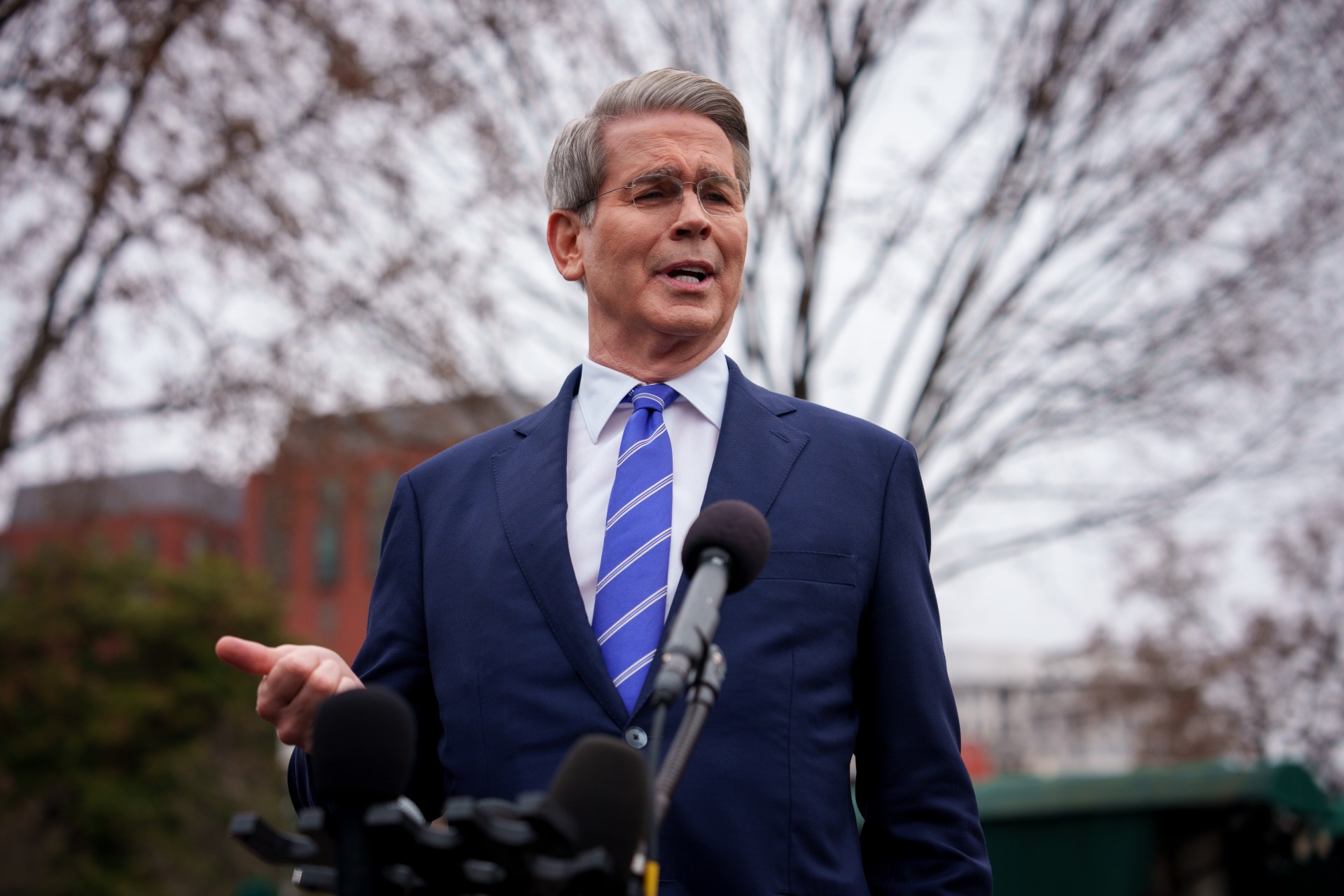
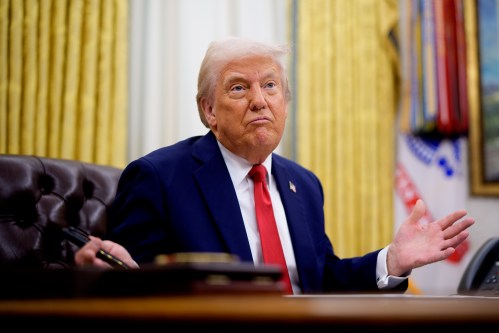




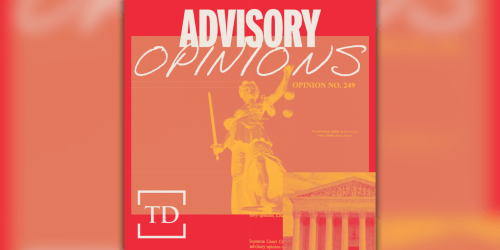



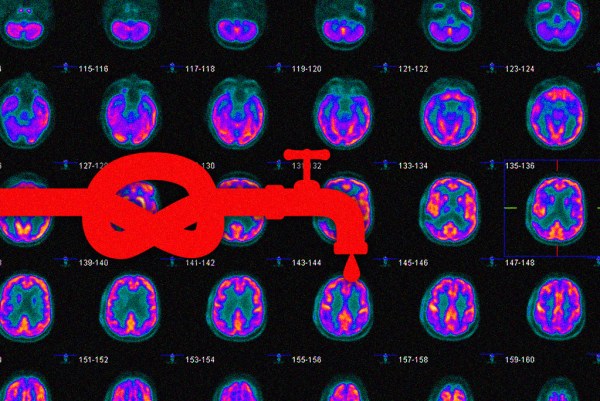

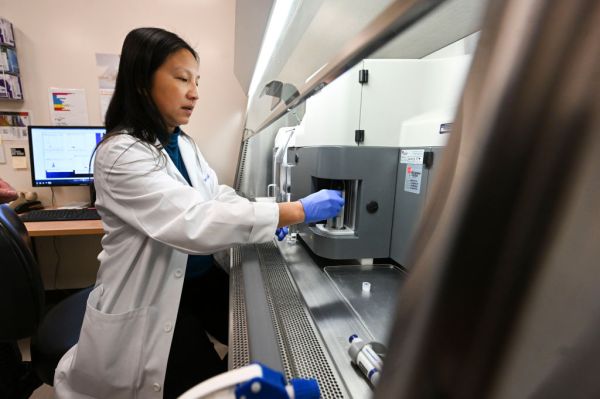

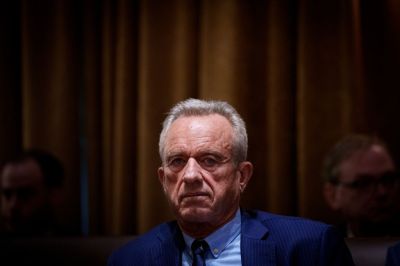
Please note that we at The Dispatch hold ourselves, our work, and our commenters to a higher standard than other places on the internet. We welcome comments that foster genuine debate or discussion—including comments critical of us or our work—but responses that include ad hominem attacks on fellow Dispatch members or are intended to stoke fear and anger may be moderated.
With your membership, you only have the ability to comment on The Morning Dispatch articles. Consider upgrading to join the conversation everywhere.